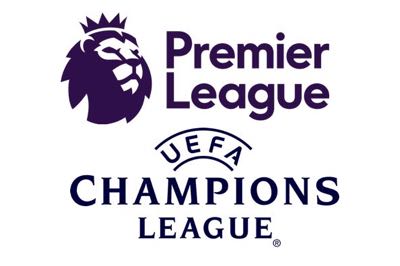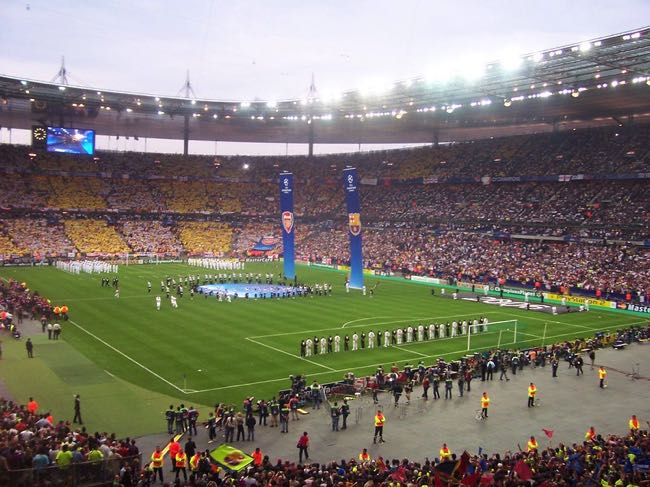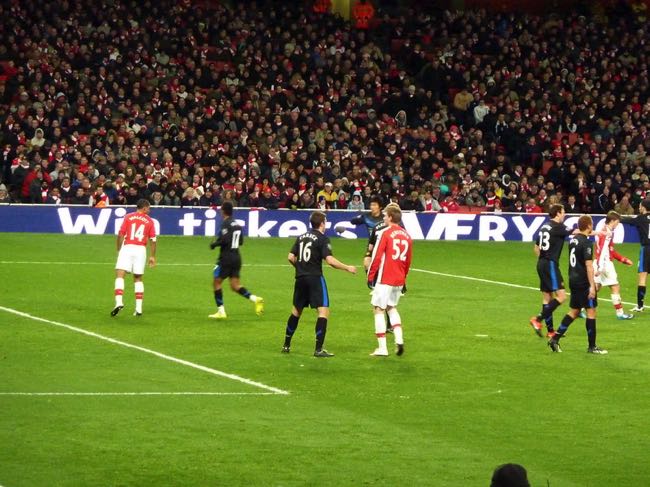 What would you rather your team be: champions of England or champions of Europe? When you word it like this the choice seems fairly obvious. Who would choose to be the top dog of just a single country when you could be crowned king of an entire continent? Silverware prestige in football is not quite as straightforward as this though and many people argue that winning the Premier League is a bigger deal than going all the way in the Champions League (and certainly the Europa League!).
What would you rather your team be: champions of England or champions of Europe? When you word it like this the choice seems fairly obvious. Who would choose to be the top dog of just a single country when you could be crowned king of an entire continent? Silverware prestige in football is not quite as straightforward as this though and many people argue that winning the Premier League is a bigger deal than going all the way in the Champions League (and certainly the Europa League!).
Defining ‘Importance’
Before jumping into the heart of the topic, let us briefly cover what is meant by ‘most important’ when it comes to silverware. There is no fixed ranking of titles by footballing institutions, so nothing formally recognises the Champions League as carrying more importance than the League Cup, for example. That said, virtually every football fan would agree that the CL is far more important than the EFL Cup because we do have a generally agreed-upon idea of a hierarchy (albeit an unwritten one).
The Fanbase
Effectively, if slightly unscientifically, you can measure the importance of a competition by how much a team/fanbase wants to win it. The stronger their desire, the more important the competition. The interesting part here though is clubs and their respective fanbase will differ on the title they want the most when it comes to the Champions League or Premier League. If you asked Liverpool fans prior to 2020 which trophy was more important to them, most would have said the Premier League.
The Team
This is because while the Reds had conquered Europe several times before, they had not yet got their hands on the Premier League (despite having won the old First Division title plenty of times). For a team like Manchester City, however, who have several Premier League titles, the Champions League has a much greater level of importance as it is a major absence from their trophy cabinet. While teams will have their own feelings about whether conquering England or Europe is more important, let us look at the objective arguments supporting either side.
More Important – Champions League

Champions League Final (Abir Anwar / Flickr.com)
There is a good case to be made that the Champions League is the most important competition to win, for a few reasons. Just to get there in the first place, you must already prove you are one of the top four clubs in England (ignoring the possibility of qualifying by winning the Europa League) which is a battle in itself. After this point, you must take on some of the leading clubs from the likes of France, Germany, Spain and Italy.
The group stage may potentially include one or perhaps two relatively weak sides but the average quality of the competition is extremely high. Even the ‘weak’ teams would be little worse, if at all, than the teams at the bottom of the Premier League. Some would argue too that the nature of the competition separates the very top teams from the rest. While in a full domestic league you can get away with a few bad games, in Europe even a bad 45 minutes of football can put you out of contention.
Due to the knockout stages being just two-legged affairs and the final being just a single game, teams have to consistently perform in order to go all the way. It can be argued that not having enough quality, but also the mental strength to deal with the extra pressure of this format, makes for a great champion.
400 Million People Watching the Final
There is also the matter of recognition. It is estimated that around 400 million people tune in to watch the Champions League final as it is such a huge event on the footballing calendar. This is much more than would spectate a title-deciding Premier League match. When Man City hosted Liverpool late on in the 2021/22 Premier League season, with the teams separated by just one point, the global audience was estimated to be 20 million.
More Lucrative
Not wishing to sound too corporate here but there is also the argument the Champions League is more important as it is more lucrative. Yes, the Premier League is the richest domestic league in the world but the bulk of the money teams receive is an equal share of broadcasting deals. The actual money directly linked to winning in 2021/22 was estimated to be £44m (10th place received £24.2m by comparison).
Winning the Champions League the same season, however, brought Real Madrid £56.7m (it would have been £59m had they won each group stage game). It also guarantees a spot in the following year’s competition, securing even more future revenue. Admittedly, this is not a gigantic difference but it remains one way of measuring ‘importance’.
More Important – Premier League

Arsenal vs Man U (wonker / Flickr.com)
We have heard the arguments from the Champions League camp but what about the Premier League? For starters, there can never be any real element of luck to win England’s top division. Of course, there will be matches where a team benefits from a favourable decision or two but after 38 games, it is almost always the genuinely best team that prevails. As such, you do tend to end up with a fully deserving champion.
With the Champions League though, you can have teams that end up benefitting from a kind draw. When winning the competition in 2016, Real Madrid took on Roma, Wolfsburg, Man City and Atletico in the knockout stages. That same season Roma finished third in Serie A, Wolfsburg eighth in the Bundesliga, Man City fourth in the Premier League and Atletico third in La Liga. Does triumphing over these four teams really produce a worthy champion of Europe?
‘Harder’ to Win?
There is also the element of luck with what players are available for any given clash. It may be that for a Champions League match a team is missing their two or three best players through injury or suspension. Again, does beating a team that is not at full strength really produce a deserving champion? In the 2014 final, Atletico’s star striker Diego Costa could only last minutes of the match due to an injury.
Of course, players regularly get injured over the duration of the league season too but the impact of this is more diluted as there is less riding on any individual match. So, it could be argued that the Premier League is ‘harder’ to win as it has a smaller element of fortune.
Rivalries in Full Force
You also have to factor in that inter-continental rivalries are not much of a thing. Sure, there can be some beef between two foreign clubs but all the most fierce rivalries belong within a nation. Due to the big rivalries between many of the top teams in England, clinching the title comes with these extra bragging rights. It also has the benefit that by winning the trophy yourself, you also prevent a rival from enjoying success, making it a doubly-sweet victory. This is what made City’s last-second title win back in 2011/12 all the more special, as if not for Aguero’s late strike, local rivals Manchester United would have won the league.
League Games Have Bigger Attendance
Lastly, attendances for league games generally tend to be greater in the league than for European clashes. Admittedly, Champions League games are played during mid-week evenings so it is not a completely fair comparison but it is quite telling nonetheless. When Man City faced Borussia Dortmund in a Champions League group stage game in September 2022, the attendance was 50,441. In the previous match, however, a league clash with the newly promoted Nottingham Forest, the crowd was significantly higher at 53,409.
Such trends are not just limited to the Citizens either. When Tottenham played Fulham in front of 61,641 fans, four days later the crowd was reduced to 57,367 for the visit of Marseille. Numbers do generally pick up during the latter stages but the Champions League does not attract the same level of consistent interest for such a long period of time.
Why Not Both?
Partly the reason why there is such a discussion around whether it is more important to win the Premier League and Champions League is that it is so difficult to win both. English top division champions so rarely manage to win the Champions League despite their best efforts. In the Premier League era, Manchester United are the only team to win the most elite double. On four other occasions, an English team has lifted the Champions League, they have fallen short domestically, often by a comfortable margin.
| Champions League Winner | Club | League Finish |
|---|---|---|
| 1998/99 | Man Utd | 1st |
| 2004/05 | Liverpool | 5th |
| 2007/08 | Man Utd | 1st |
| 2011/12 | Chelsea | 3rd |
| 2018/19 | Liverpool | 2nd |
| 2020/21 | Chelsea | 4th |
The fact that there have only been six English Champions League (or European Cup, as it was previously known) winners since 1984 does highlight how difficult this competition is to win. The Premier League is often ranked as the top, or at least one of the top divisions in Europe but this has not translated to dominance on the continent. It is particularly peculiar how much Man City have struggled on Europe’s biggest stage despite clear dominance back home in England.
Man City’s European Curse
Liverpool broke their Premier League curse with an emphatic title win in 2019/20 but rivals Man City have still not been able to overcome their Champions League drought. You do feel like it is only a matter of time before they grab their first European crown but up to now, they have consistently come unstuck.
| Season | League Finish | Champions League Stage of Elimination |
|---|---|---|
| 2011/12 | 1st | Group stage |
| 2012/13 | 2nd | Group stage |
| 2013/14 | 1st | Round of 16 |
| 2014/15 | 2nd | Round of 16 |
| 2015/16 | 4th | Semi-final |
| 2016/17 | 3rd | Round of 16 |
| 2017/18 | 1st | Quarter-final |
| 2018/19 | 1st | Quarter-final |
| 2019/20 | 2nd | Quarter-final |
| 2020/21 | 1st | Runner-up |
| 2021/22 | 1st | Semi-final |
